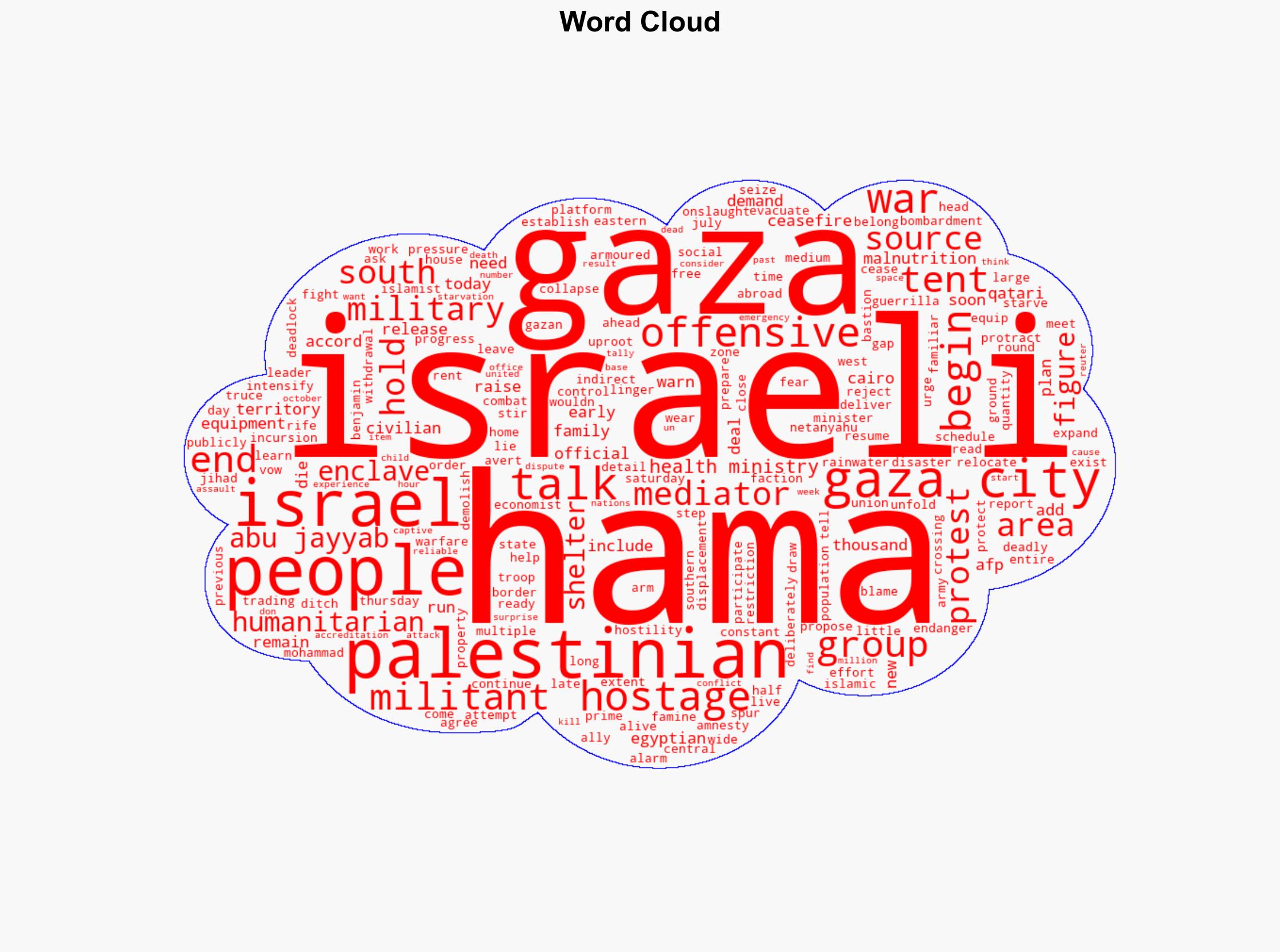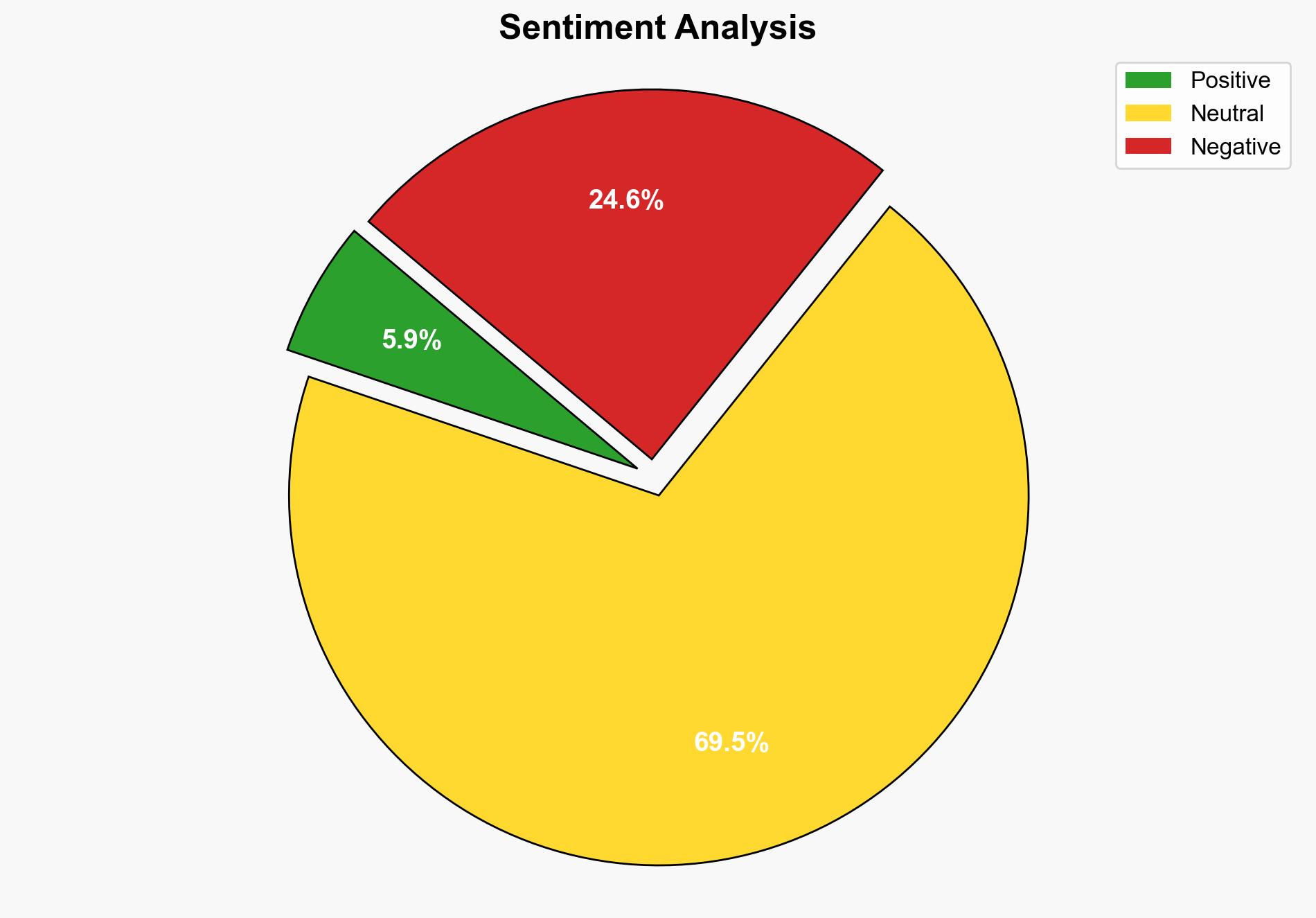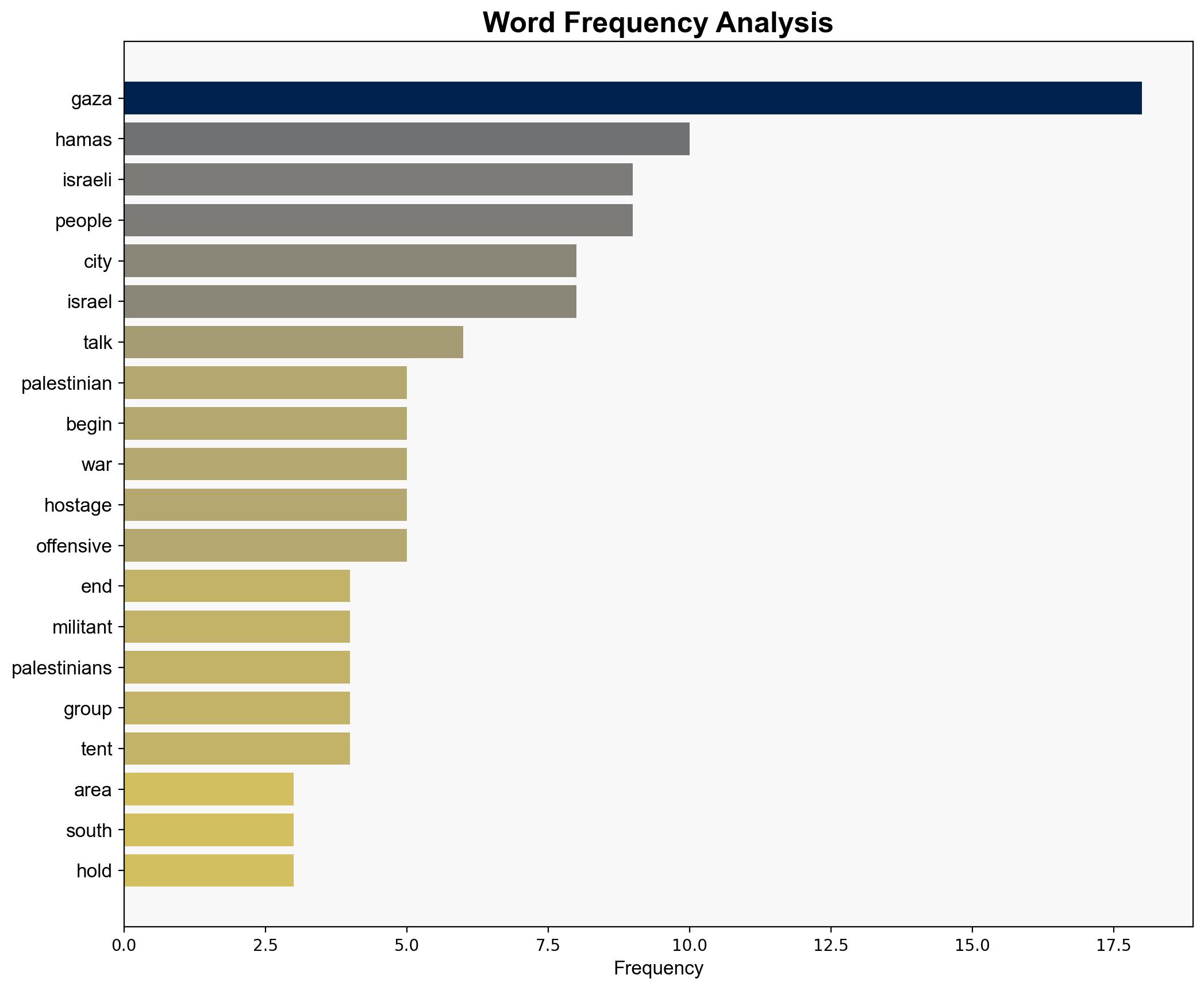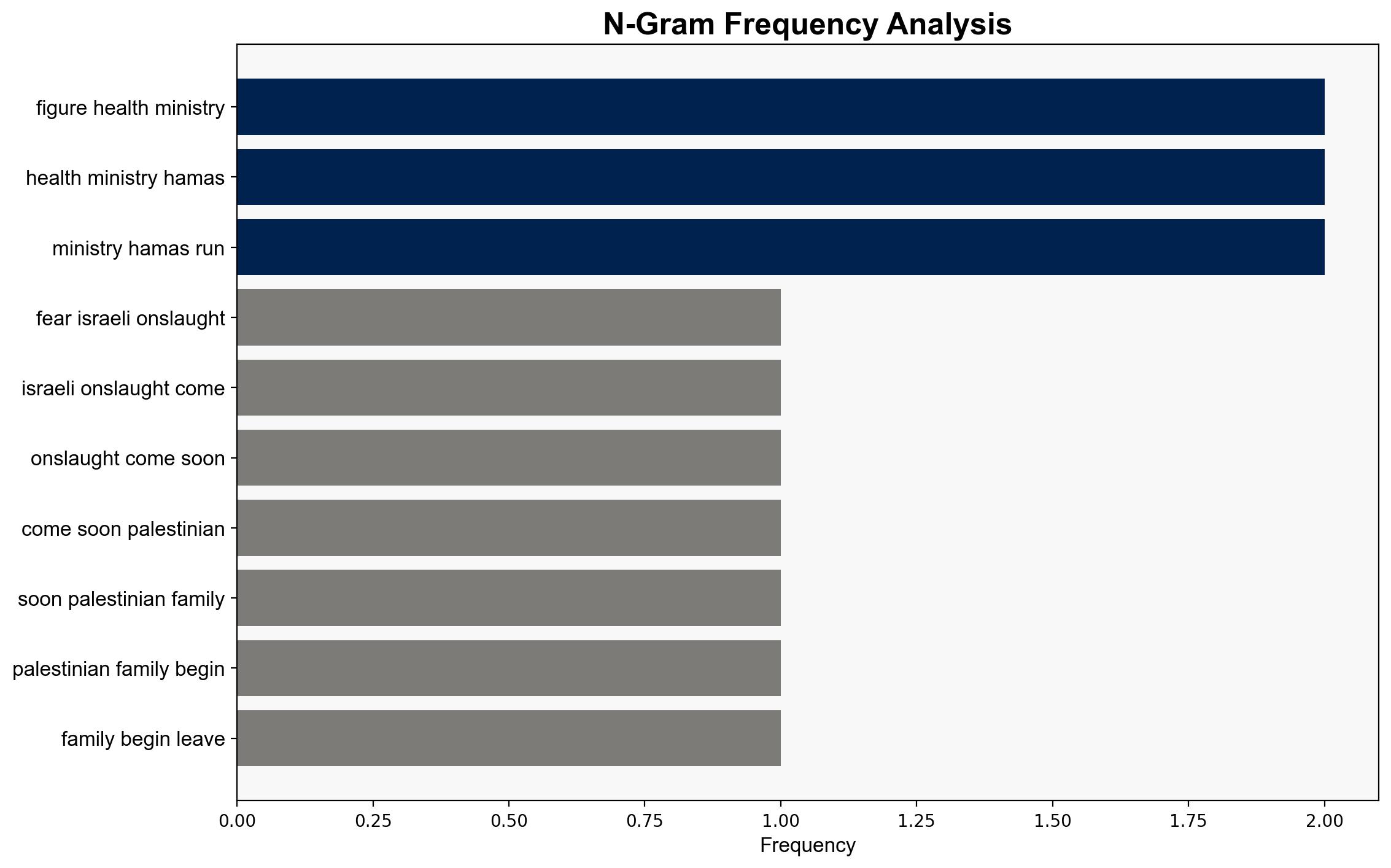Some Palestinians leaving Gaza City ahead of offensive – RTE
Published on: 2025-08-18
Intelligence Report: Some Palestinians leaving Gaza City ahead of offensive – RTE
1. BLUF (Bottom Line Up Front)
The situation in Gaza City is highly volatile, with significant movements of civilians due to the anticipated Israeli military offensive. The most supported hypothesis is that the Israeli military intends to intensify its operations in Gaza City, prompting civilian evacuations. Confidence level: Moderate. Recommended action: Enhance diplomatic efforts to mediate a ceasefire and address humanitarian needs to prevent further escalation.
2. Competing Hypotheses
1. **Hypothesis A**: The Israeli military is preparing for a large-scale ground offensive in Gaza City, prompting civilian evacuations to minimize casualties.
– **Supporting Evidence**: Reports of Israeli military warnings, preparations for tent shelters, and increased diplomatic activity suggest imminent military action.
– **Structured Analytic Technique**: ACH 2.0 indicates a strong alignment of evidence with this hypothesis.
2. **Hypothesis B**: The movement of civilians is primarily due to psychological operations and misinformation aimed at creating panic and destabilizing the region.
– **Supporting Evidence**: Reports of protests and social media campaigns could indicate an attempt to manipulate public perception.
– **Structured Analytic Technique**: Cross-Impact Simulation shows potential for misinformation to influence civilian behavior, though less supported by direct evidence.
3. Key Assumptions and Red Flags
– **Assumptions**: It is assumed that the Israeli military’s warnings are credible and that civilians are responding primarily to these warnings.
– **Red Flags**: Potential for misinformation campaigns influencing civilian movements; lack of independent verification of casualty figures.
– **Blind Spots**: Limited insight into internal decision-making processes of Hamas and Israeli military strategies.
4. Implications and Strategic Risks
– **Escalation Risks**: A ground offensive could lead to significant civilian casualties and further destabilize the region.
– **Humanitarian Concerns**: Displacement and lack of shelter could exacerbate the humanitarian crisis, increasing malnutrition and disease.
– **Geopolitical Impact**: Prolonged conflict may strain international relations and hinder peace negotiations.
5. Recommendations and Outlook
- Enhance diplomatic engagement with regional mediators like Egypt and Qatar to facilitate ceasefire talks.
- Increase humanitarian aid and logistical support to displaced populations to mitigate immediate needs.
- Scenario Projections:
- Best Case: Successful ceasefire negotiations lead to de-escalation and humanitarian relief.
- Worst Case: Full-scale ground offensive results in high civilian casualties and regional instability.
- Most Likely: Continued skirmishes with intermittent ceasefire negotiations and humanitarian challenges.
6. Key Individuals and Entities
– Benjamin Netanyahu
– Hamas leadership
– Egyptian and Qatari mediators
– Mohammad Abu Jayyab
7. Thematic Tags
national security threats, regional focus, humanitarian crisis, geopolitical tensions





